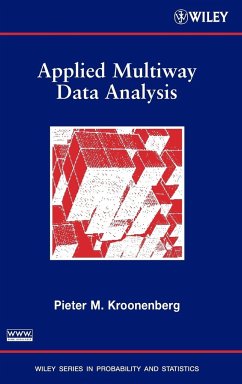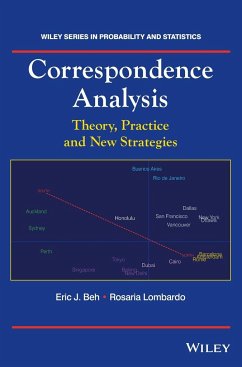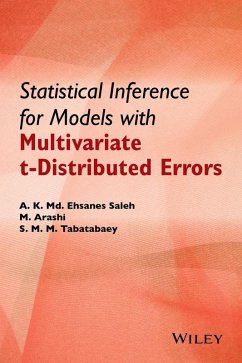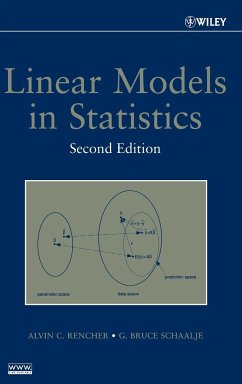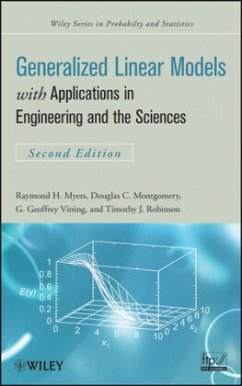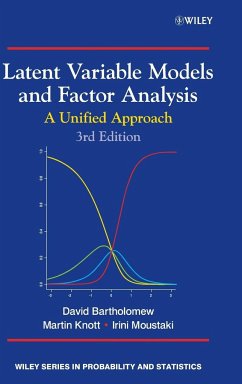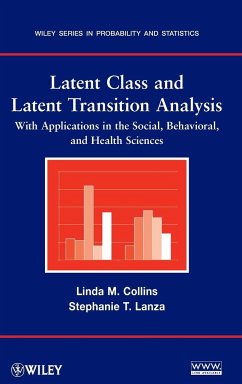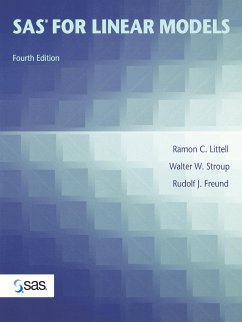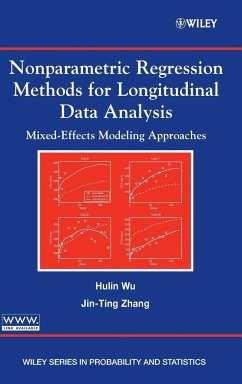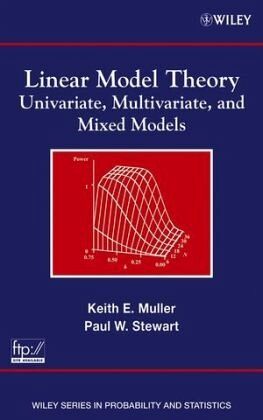
Linear Model Theory
Univariate, Multivariate, and Mixed Models

PAYBACK Punkte
75 °P sammeln!
Fundamentals of Multivariate Linear Models: Theory and Application consists of five parts. Part 1 centers on brief, clear mathematical statements of notation, assumptions, and formulas. Real data examples illustrate and motivate students. Part 2 consists of mathematical prerequisites (matrix algebra and the fundamentals of multivariate statistical theory) and is based on the assumption that some students either have not learned this material already or will need to review it. Part 3 contains chapters on the multivariate Gaussian distribution and quadratic forms. Part 4 focuses on estimation and inference. Part 5 concentrates on study planning. Each section of the book contains homework assignments and exams that instructors may use for their classes, or that students can use to test their own knowledge
A precise and accessible presentation of linear model theory, illustrated with data examples
Statisticians often use linear models for data analysis and for developing new statistical methods. Most books on the subject have historically discussed univariate, multivariate, and mixed linear models separately, whereas Linear Model Theory: Univariate, Multivariate, and Mixed Models presents a unified treatment in order to make clear the distinctions among the three classes of models.
Linear Model Theory: Univariate, Multivariate, and Mixed Models begins with six chapters devoted to providing brief and clear mathematical statements of models, procedures, and notation. Data examples motivate and illustrate the models. Chapters 7-10 address distribution theory of multivariate Gaussian variables and quadratic forms. Chapters 11-19 detail methods for estimation, hypothesis testing, and confidence intervals. The final chapters, 20-23, concentrate on choosing a sample size. Substantial sets of excercises of varying difficulty serve instructors for their classes, as well as help students to test their own knowledge.
The reader needs a basic knowledge of statistics, probability, and inference, as well as a solid background in matrix theory and applied univariate linear models from a matrix perspective. Topics covered include:
_ A review of matrix algebra for linear models
_ The general linear univariate model
_ The general linear multivariate model
_ Generalizations of the multivariate linear model
_ The linear mixed model
_ Multivariate distribution theory
_ Estimation in linear models
_ Tests in Gaussian linear models
_ Choosing a sample size in Gaussian linear models
Filling the need for a text that provides the necessary theoretical foundations for applying a wide range of methods in real situations, Linear Model Theory: Univariate, Multivariate, and Mixed Models centers on linear models of interval scale responses with finite second moments. Models with complex predictors, complex responses, or both, motivate the presentation.
Statisticians often use linear models for data analysis and for developing new statistical methods. Most books on the subject have historically discussed univariate, multivariate, and mixed linear models separately, whereas Linear Model Theory: Univariate, Multivariate, and Mixed Models presents a unified treatment in order to make clear the distinctions among the three classes of models.
Linear Model Theory: Univariate, Multivariate, and Mixed Models begins with six chapters devoted to providing brief and clear mathematical statements of models, procedures, and notation. Data examples motivate and illustrate the models. Chapters 7-10 address distribution theory of multivariate Gaussian variables and quadratic forms. Chapters 11-19 detail methods for estimation, hypothesis testing, and confidence intervals. The final chapters, 20-23, concentrate on choosing a sample size. Substantial sets of excercises of varying difficulty serve instructors for their classes, as well as help students to test their own knowledge.
The reader needs a basic knowledge of statistics, probability, and inference, as well as a solid background in matrix theory and applied univariate linear models from a matrix perspective. Topics covered include:
_ A review of matrix algebra for linear models
_ The general linear univariate model
_ The general linear multivariate model
_ Generalizations of the multivariate linear model
_ The linear mixed model
_ Multivariate distribution theory
_ Estimation in linear models
_ Tests in Gaussian linear models
_ Choosing a sample size in Gaussian linear models
Filling the need for a text that provides the necessary theoretical foundations for applying a wide range of methods in real situations, Linear Model Theory: Univariate, Multivariate, and Mixed Models centers on linear models of interval scale responses with finite second moments. Models with complex predictors, complex responses, or both, motivate the presentation.



